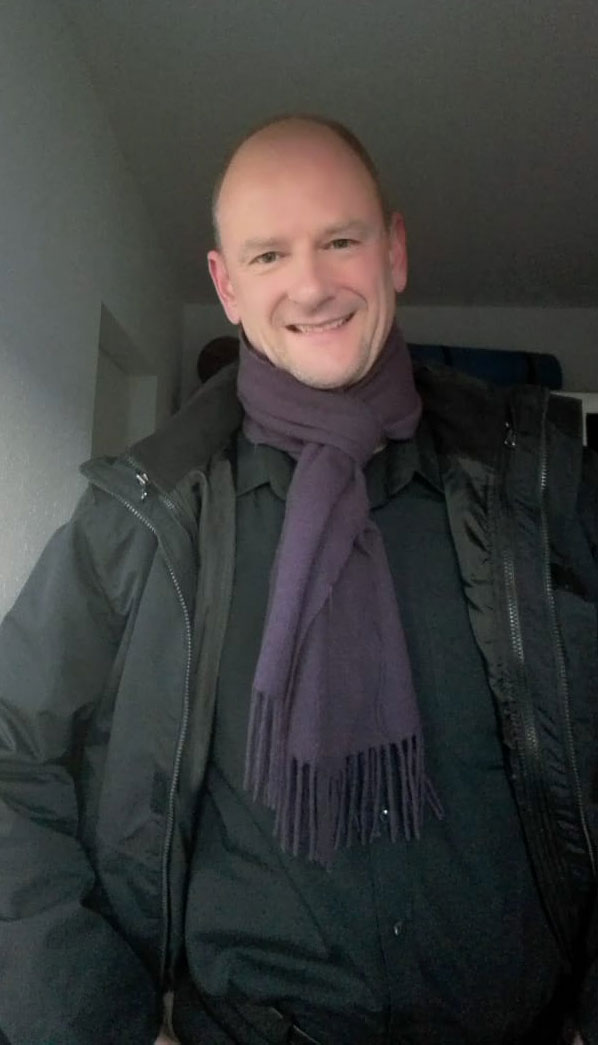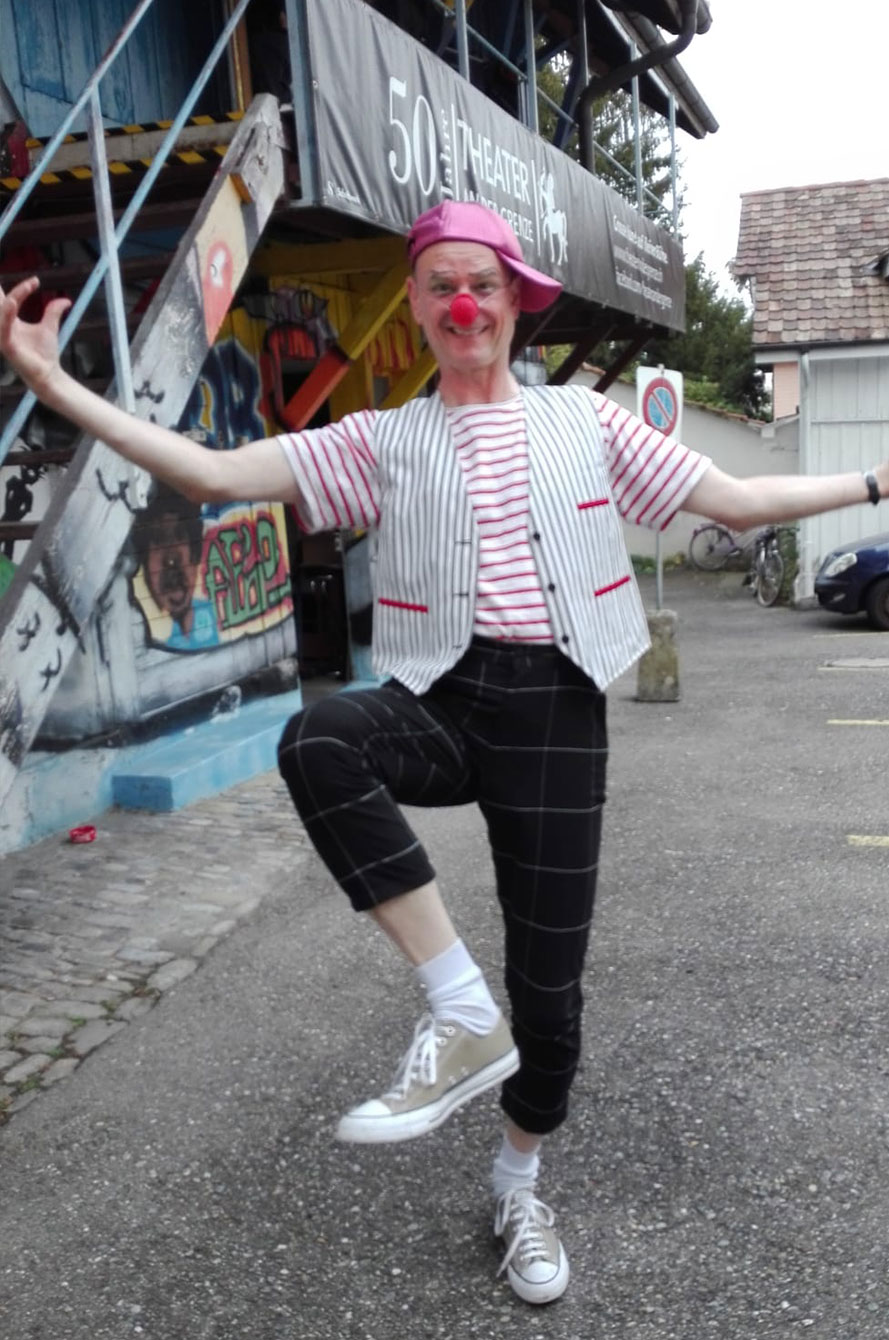About me
My person and your motivation
Hello, my name is Rolf Armin Schwedes and I am very pleased about your interest in me and my language trainings. As the founder of RolfsDeutschtraining, I offer language solutions tailored to the specific needs and wishes of my clients in the field of German as a foreign language.

Rolf Armin Schwedes – Language trainer for German as a foreign language
What motivates you to learn German or improve your language skills?
Would you like to start a job or take the next step in your career in a German-speaking country? Or is your goal to be able to communicate with German friends in German?
No matter what goal you are pursuing, my concern is to be a competent partner for you on your learning path and to support you in achieving your personal and professional goals.

Rolf Armin Schwedes – Language trainer for German as a foreign language
How do I design my language training?
How has your learning journey been so far and what specific learning goals do you have? What time frame do you have available for this? In which everyday and professional situations do you use your language skills?
I will ask you these and other questions in an initial free consultation to find out what content a language training programme tailored to your personal wishes and goals should have. Before the course begins, I will also conduct an oral and written placement test so that I can assess your current language skills.
How I managed to learn Portuguese?
I spent nine years in Lisbon and during this time I acquired a good knowledge of the Portuguese language.
In the early days, I had to prepare myself for every single situation in daily life and think about what vocabulary I would use. I did this before visiting a public authority or a doctor’s appointment, for example. And with every challenge I mastered, my confidence in my abilities grew. I also learnt a lot about listening and paid very close attention to the vocabulary my conversation partner used in every conversation. Of course, mistakes were my constant companions, which sometimes led to minor and sometimes amusing misunderstandings.
Looking back, I can say that the early production of language was crucial for my personal learning success.

1994 – During my studies in Lisbon – suddenly learning a new language and having the courage to learn by making mistakes.
My career as a language trainer
I was already aware during my business studies that I wanted to pursue a professional activity in which communication and contact with people would be in the foreground.
After finishing my studies abroad in Lisbon, I decided to stay in Portugal. As I was abroad, I had the idea of teaching German. And as a native speaker with a university degree, this was actually possible. So my career as a language trainer began in 1996 with a course at the German technology company Siemens. Over time, in addition to the individual training courses at Siemens, I also supervised smaller group training courses at language institutes in the evenings. After returning to Germany in 2003 and taking a 7-year break from teaching, I started teaching German in the Stuttgart area in 2011. Until 2020, I supervised face-to-face training courses for companies such as Bosch, Daimler and Porsche.
I have also been teaching online since 2020 and have therefore supervised language training courses for Amazon, Google, Audi and BMW, for example. Over the years, I have developed my own teaching style focussing on communication and language production and have continuously improved the quality of my teaching. In the meantime, I also supervise language training courses for German learners in senior management positions.

Why did I want to become a clown?
I feel quite confident in my role as a language trainer as I have many years of experience.
But outside of this professional environment, I have often felt a little insecure when I have shown myself to other people in any way. That’s why I decided to do a clown training course.
Now I find it easier to laugh at myself and make others laugh. This is very helpful in the classroom to create a positive learning atmosphere.
And of course I can also use the clown very well in lessons with children, which I am very happy about.
What is important to me?
A new, foreign language opens the door to a new world and broadens our horizons. When learning this language, however, it is necessary to leave the comfort zone that our own mother tongue or the English language gives us to a certain extent.
When learning a language, I therefore believe that an early sense of achievement is very important for this step to be successful.
For this reason, my language training courses focus on language production. I try to organise the lessons in such a way that the participants can communicate in oral and written form in the new language as early as possible and gain their first sense of achievement in class.
The next important step is for the German learner to look for situations in their everyday professional and private life in which they can use their knowledge and also have positive experiences. This could be a conversation with a neighbour or small talk with a new colleague, for example. And with every positive experience, the enjoyment of the new language increases and you feel more confident in using the new language.
Every person is special and unique
My exciting task is to design language training tailored to the individual goals and wishes of German learners.
It is always an exciting challenge for me to find out how I can best support the language learners in achieving their personal goals by asking questions and trying out different forms of learning. As a rule, I succeed well, which is also shown by the many positive comments from German learners about the quality of my teaching.
